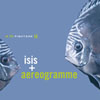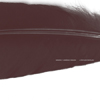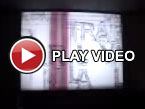 The irascible and idiosyncratic Michael Hurley has left an alternately memorable and inconsistent wake of releases behind him in his 40+ years of toiling in folk music's lunatic fringe, but he seems to be in the midst of a creative renaissance as of late. This eclectic, lived-in batch of songs is nothing revelatory, but oozes with shambling, offbeat charisma nonetheless.
The irascible and idiosyncratic Michael Hurley has left an alternately memorable and inconsistent wake of releases behind him in his 40+ years of toiling in folk music's lunatic fringe, but he seems to be in the midst of a creative renaissance as of late. This eclectic, lived-in batch of songs is nothing revelatory, but oozes with shambling, offbeat charisma nonetheless.
Two new shows just for you. We have squeezed out two extended release episodes for this weekend to get you through this week. They contain mostly new songs but there's also new issues from the vaults. The first show features music from Rider/Horse, Mint Field, Robert Aiki Aubrey Lowe, Anastasia Coope, ISAN, Stone Music, La Securite, Bark Psychosis, Jon Rose, Master Wilburn Burchette, Umberto, Wand, Tim Koh, Sun An, and Memory Drawings. The second episode has music by Laibach, Melt-Banana, Chuck Johnson, X, K. Yoshimatsu, Dorothy Carter, Pavel Milyakov, Violence Gratuite, Mark Templeton, Dummy, Endon, body / negative, Midwife, Alberto Boccardi, Divine. Cow in Maui from Veronika in Vienna. Get involved: subscribe, review, rate, share with your friends, send images! |



 Isis are undeniably one of the most popular hard rock independent label bands in the business while Aereogramme deserve to be right up there with them, headlining mega shows with the same numbers. Both have soft and loud moments, both Aaron Turner and Craig B can coo like a dove and scream like Satan's spawn, but, even as this is one of the best In the Fishtank releases, I'm skeptical if it will gain new fans for either entity.
Isis are undeniably one of the most popular hard rock independent label bands in the business while Aereogramme deserve to be right up there with them, headlining mega shows with the same numbers. Both have soft and loud moments, both Aaron Turner and Craig B can coo like a dove and scream like Satan's spawn, but, even as this is one of the best In the Fishtank releases, I'm skeptical if it will gain new fans for either entity. Despite being a duo, Hototogisu have always had the vibe of a recluse within their music. There’s always been a distance and privacy in their sound since Matthew Bower (Skullflower / Sunroof!) and Marcia Bassett (Double Leopards / Zaimph) first teamed up a few records into Hototogisu’s discography. Within the morass of sounds there’s always been a huge human element, but it’s never been a consciously communicative voice. Hototogisu have always been unique in the field of drone rock, pushing competition into either straight up plagiarism or shunting them into reinvention.
Despite being a duo, Hototogisu have always had the vibe of a recluse within their music. There’s always been a distance and privacy in their sound since Matthew Bower (Skullflower / Sunroof!) and Marcia Bassett (Double Leopards / Zaimph) first teamed up a few records into Hototogisu’s discography. Within the morass of sounds there’s always been a huge human element, but it’s never been a consciously communicative voice. Hototogisu have always been unique in the field of drone rock, pushing competition into either straight up plagiarism or shunting them into reinvention. Deerhoof have always done an admirable job of spanning the wide gulfbetween pure pop and pure noise. The most recent release from the San Franciscoquartet is their strongest synthesis of noise and pop yet.
Deerhoof have always done an admirable job of spanning the wide gulfbetween pure pop and pure noise. The most recent release from the San Franciscoquartet is their strongest synthesis of noise and pop yet. Thisguy who seems to care about the welfare of animals and suffers from asevere case of misanthropy has me entranced. Masami Akita'spredisposition to releasing animal-related albums has spawned yetanother record that has perhaps no sonic relation to its title or PETAsponsorship.
Thisguy who seems to care about the welfare of animals and suffers from asevere case of misanthropy has me entranced. Masami Akita'spredisposition to releasing animal-related albums has spawned yetanother record that has perhaps no sonic relation to its title or PETAsponsorship. The latest release in an impressive line of ‘Merz’ titled releases onImportant may prove to be Merzbow’s most easily enjoyable and finestbeat related work to date. Masami Akita continues to fight thegood fight on behalf of the animal kingdom though his arsenal of noise,static, fury and a trusty drum machine.
The latest release in an impressive line of ‘Merz’ titled releases onImportant may prove to be Merzbow’s most easily enjoyable and finestbeat related work to date. Masami Akita continues to fight thegood fight on behalf of the animal kingdom though his arsenal of noise,static, fury and a trusty drum machine. Both of these artists have discographies that consistently combine the worlds of laptop based electronica and the purest, most natural possible human instrumentation into strong, cohesive works, and this collaboration is no exception. With Minamo's blending of folk and experimental electronics and English's penchant for dulcet tones and field recordings, the results are an even more perfect synthesis of the varying styles.
Both of these artists have discographies that consistently combine the worlds of laptop based electronica and the purest, most natural possible human instrumentation into strong, cohesive works, and this collaboration is no exception. With Minamo's blending of folk and experimental electronics and English's penchant for dulcet tones and field recordings, the results are an even more perfect synthesis of the varying styles. Consisting of their first released output since going on hiatus in 2003, this set is a lengthy collection compiling all four Peel Sessions the group performed, most of their b-sides, and their three out of print early EPs before signing with Mute. The result is a five year span of music that will satisfy both the fan who has all of the albums, and the newcomer who has yet to hear anything from the trio.
Consisting of their first released output since going on hiatus in 2003, this set is a lengthy collection compiling all four Peel Sessions the group performed, most of their b-sides, and their three out of print early EPs before signing with Mute. The result is a five year span of music that will satisfy both the fan who has all of the albums, and the newcomer who has yet to hear anything from the trio. The fact that Aranos's latest album was recorded live at Prague's Archa theater earlier this year is pretty irrelevant, aside from the surprise that one man with a violin is able to conjure up such an unholy cacophony on a stage by himself. Instead, Archarcha is far more notable for being the formal debut of a particularly violent and difficult new long-form piece, the 30-minute "Concerto No. 42 for Violin and HD." Bizarrely, the album also works as a kind of a perversely effective career retrospective, despite the fact that only one of the four pieces has ever been released before.
The fact that Aranos's latest album was recorded live at Prague's Archa theater earlier this year is pretty irrelevant, aside from the surprise that one man with a violin is able to conjure up such an unholy cacophony on a stage by himself. Instead, Archarcha is far more notable for being the formal debut of a particularly violent and difficult new long-form piece, the 30-minute "Concerto No. 42 for Violin and HD." Bizarrely, the album also works as a kind of a perversely effective career retrospective, despite the fact that only one of the four pieces has ever been released before. Collecting two albums worth of in-studio performances, six live songs split between Jack Rose and Glenn Jones, a pair of duets, and one superb interview, The Things That We Used To Do is an exceptional and insightful document into the talents and personalities of both guitarists. Professionally filmed, recorded, and mastered, it's like the ultimate bootleg for fans and admirers, providing excellent sound and video of two masters at work, as well as copious amounts of information about their backgrounds, their experiences with legends like John Fahey and Robbie Basho, song-writing, and something Jack liked to call "pussy chords."
Collecting two albums worth of in-studio performances, six live songs split between Jack Rose and Glenn Jones, a pair of duets, and one superb interview, The Things That We Used To Do is an exceptional and insightful document into the talents and personalities of both guitarists. Professionally filmed, recorded, and mastered, it's like the ultimate bootleg for fans and admirers, providing excellent sound and video of two masters at work, as well as copious amounts of information about their backgrounds, their experiences with legends like John Fahey and Robbie Basho, song-writing, and something Jack liked to call "pussy chords."
